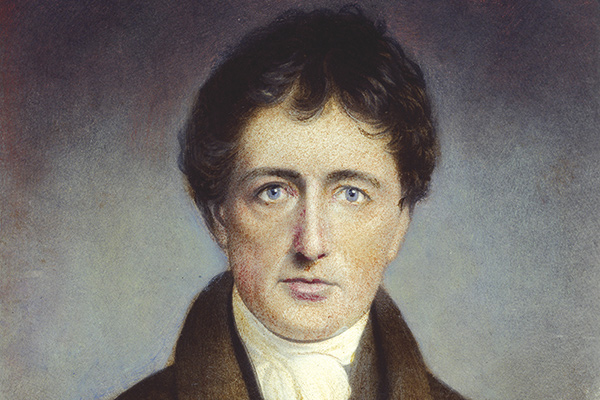
March 20, 1822.
My Dear Wordsworth,--A letter from you is very grateful; I have not seen a Kendal postmark so long. We are pretty well, save colds and rheumatics, and a certain deadness to everything, which I think I may date from poor John's loss, and another accident or two at the same time, that has made me almost bury myself at Dalston, where yet I see more faces than I could wish. Deaths overset one and put one out long after the recent grief. Two or three have died, within this last two twelvemonths, and so many parts of me have been numbed. One sees a picture, reads an anecdote, starts a casual fancy, and thinks to tell of it to this person in preference to every other; the person is gone whom it would have peculiarly suited. It won't do for another. Every departure destroys a class of sympathies. There's Captain Burney gone! What fun has whist now? What matters it what you lead, if you can no longer fancy him looking over you? [1] One never hears anything, but the image of the particular person occurs with whom alone almost you would care to share the intelligence,--thus one distributes oneself about; and now for so many parts of me I have lost the market. Common natures do not suffice me. Good people, as they are called, won't serve; I want individuals. I am made up of queer points, and I want so many answering needles. The going-away of friends does not make the remainder more precious. It takes so much from them, as there was a common link. A, B, and C make a party. A dies. B not only loses A, but all A's part in C. C loses A's part in B, and so the alphabet sickens by subtraction of interchangeables. I express myself muddily, capite dolente. I have a dulling cold. My theory is to enjoy life; but my practice is against it. I grow ominously tired of official confinement. Thirty years have I served the Philistines, and my neck is not subdued to the yoke. You don't know how wearisome it is to breathe the air of four pent walls without relief, day after day, all the golden hours of the day between ten and four, without ease or interposition. T�det me harum quotidianarum formarum, these pestilential clerk-faces always in one's dish. Oh for a few years between the grave and the desk! they are the same, save that at the latter you are the outside machine. The foul enchanter [Nick?], "letters four do form his name,"--Busirane [2] is his name in hell,--that has curtailed you of some domestic comforts, hath laid a heavier hand on me, not in present infliction, but in the taking away the hope of enfranchisement. I dare not whisper to myself a pension on this side of absolute incapacitation and infirmity, till years have sucked me dry,--Otium cum indignitate. I had thought in a green old age (oh, green thought!) to have retired to Ponder's End,--emblematic name, how beautiful!,--in the Ware Road, there to have made up my accounts with Heaven and the Company, toddling about between it and Cheshunt, anon stretching, on some fine Izaak Walton morning, to Hoddesdon or Amwell, careless as a beggar; but walking, walking ever, till I fairly walked myself off my legs,--dying walking! The hope is gone. I sit like Philomel all day (but not singing), with my breast against this thorn of a desk, with the only hope that some pulmonary affliction may relieve me. Vide Lord Palmerston's report of the clerks in the War-office (Debates in this morning's "Times"), by which it appears, in twenty years as many clerks have been coughed and catarrhed out of it into their freer graves. Thank you for asking about the pictures. Milton hangs over my fire-side in Covent Garden (when I am there); the rest have been sold for an old song, wanting the eloquent tongue that should have set them off! You have gratified me with liking my meeting with Dodd. For the Malvolio story,--the thing is become in verity a sad task, and I eke it out with anything. If I could slip out of it I should be happy; but our chief-reputed assistants have forsaken us. The Opium-Eater crossed us once with a dazzling path, and hath as suddenly left us darkling; and, in short, I shall go on from dull to worse, because I cannot resist the booksellers' importunity,--the old plea, you know, of authors; but I believe on my part sincere. Hartley I do not so often see, but I never see him in unwelcome hour. I thoroughly love and honor him. I send you a frozen epistle; but it is winter and dead time of the year with me. May Heaven keep something like spring and summer up with you, strengthen your eyes, and make mine a little lighter to encounter with them, as I hope they shall yet and again, before all are closed!
Yours, with every kind remembrance,
C. L.